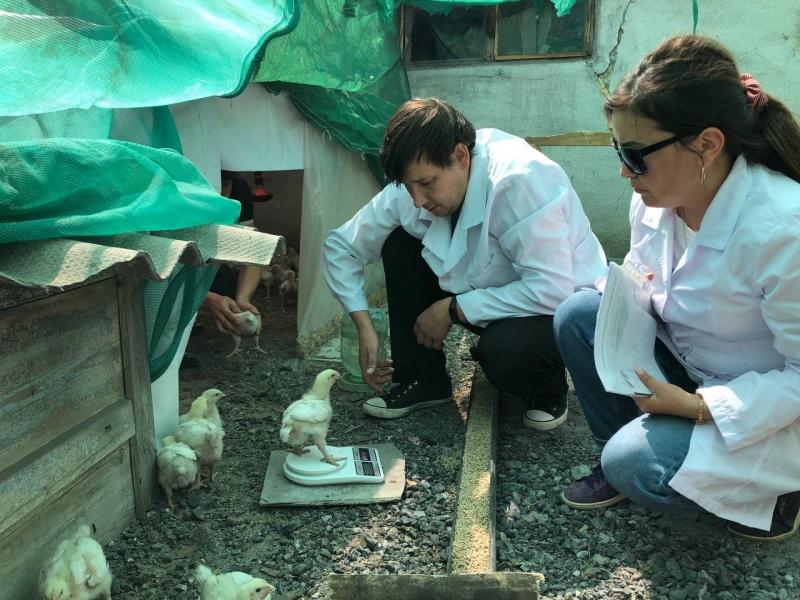
The staff of Kazakh Agrotechnical University named after S. Seifullin, in addition to scientific and production activities, pays great attention to social support for rural residents of the village of Nauchnyi, where the scientific and production center of grain farming is located. For the third year, the trade union committee and staff of the university help residents to solve the issue of self-employment through the project "Poultry: from the yard to the table. As a result of the productive tandem, the villagers learn about poultry farming without investing money, expand their personal subsidiary farms, and the city residents get an ecologically clean product.
As Mahabbat Saginbayeva, professor of KATU Department of Livestock Products Processing Technology and the project manager, stated, the university researchers tried to develop a model of effective operation of private farms by the example of poultry meat production. At the same time, the only thing required from the project participants, residents of the village, is the proper care of poultry. All that is necessary for poultry farming is provided by the university.
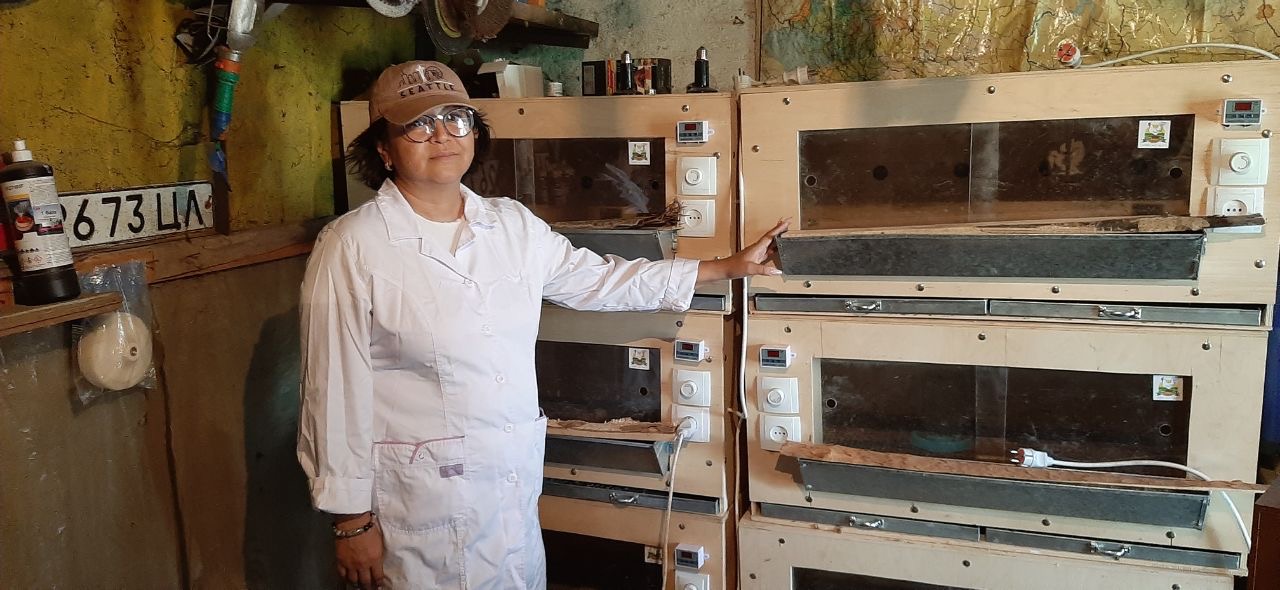 "The investors in the project are the faculty and staff of the university. Through the local union, money is raised, equipment, daily chickens, feed, and veterinary drugs are purchased. In the villages, many locals raise birds in their backyards. However, often the villagers do not have enough skills and knowledge to care for them. That's why the university staff decided to help people who are interested in self-employment and willing to learn poultry farming by following all our recommendations", - says Makhabbat Borashevna.
"The investors in the project are the faculty and staff of the university. Through the local union, money is raised, equipment, daily chickens, feed, and veterinary drugs are purchased. In the villages, many locals raise birds in their backyards. However, often the villagers do not have enough skills and knowledge to care for them. That's why the university staff decided to help people who are interested in self-employment and willing to learn poultry farming by following all our recommendations", - says Makhabbat Borashevna.
The two-way cooperation scheme is simple - residents receive 200 head of chickens, brooder for their housing, feed and veterinary medicines free of charge. Villagers only need to prepare the premises and feed the birds. The work is supervised by university researchers who make recommendations, weigh the birds, and monitor their overall condition. After two months, the birds are taken away for slaughter. 40% of the meat remains with the project participants as compensation for their labor. Employees also get their money back in meat products. Part of it is supplied to the city's retail outlets.
According to the head of the project, the birds in the farmsteads are raised without antibiotics. The diet contains only feed and vitamin complexes - probiotics to improve the digestive tract. As noted above, in addition to consulting poultry houses, the project also includes a direction of dissemination of knowledge. In the fall and winter, researchers conduct training seminars for participants.
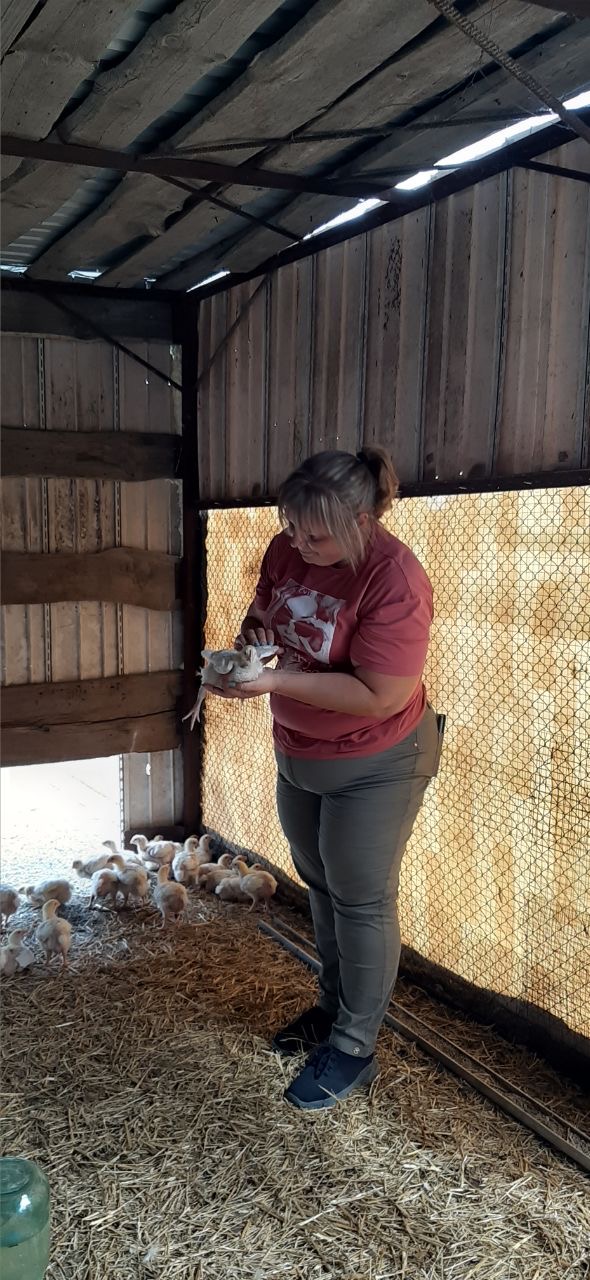 Natalia Zuyeva, a resident of Nauchnyi village, is participating in the project for the first time this year. Other villagers' success inspired her to do so.
Natalia Zuyeva, a resident of Nauchnyi village, is participating in the project for the first time this year. Other villagers' success inspired her to do so.
"In March we heard that Karaganda region successfully implemented the project. In addition, we heard that in our village and in neighboring communities there are already good indicators. Before that we tried to breed birds ourselves, but something didn't work out. We could not understand what mistakes we were making. As such, my husband and I decided to take up poultry farming under the supervision of scientists. They brought us both fodder and equipment. Everything was provided. Soon we will see what indicators we will have", - says Natalia.
The university's social initiative is three years old. If in the very beginning, in the private farms were given a total of 1000 heads, this year, this figure has grown to 4000. And this means that the number of those who want to participate every year is increasing. Now the project involves not only the residents of the village of Nauchnyi. Residents of the settlements of Damsa and Shortandy have also joined.
"In 2020 we got 2.2 tons of poultry meat. It's easy to talk about, but there's a lot of work behind those numbers. The staff did the calculations, looked for suppliers of equipment, birds, and feed. We had to organize delivery, negotiate with the slaughterhouses, and then distribute the products. For example, most recently there was a problem with the fodder. Prices went up. Only thanks to the direct intervention of the university management we were able to provide LPHs with fodder. This is all a huge responsibility," says Gulnar Asanova, PhD in Economics, Associate Professor at KATU and consultant to young scientists.
It has become known that KATU has also invested heavily in the infrastructure of the Nauchnyi settlement. A residential house for researchers was built in the village, and the main road leading to the village was asphalted this spring.






































 "The investors in the project are the faculty and staff of the university. Through the local union, money is raised, equipment, daily chickens, feed, and veterinary drugs are purchased. In the villages, many locals raise birds in their backyards. However, often the villagers do not have enough skills and knowledge to care for them. That's why the university staff decided to help people who are interested in self-employment and willing to learn poultry farming by following all our recommendations", - says Makhabbat Borashevna.
"The investors in the project are the faculty and staff of the university. Through the local union, money is raised, equipment, daily chickens, feed, and veterinary drugs are purchased. In the villages, many locals raise birds in their backyards. However, often the villagers do not have enough skills and knowledge to care for them. That's why the university staff decided to help people who are interested in self-employment and willing to learn poultry farming by following all our recommendations", - says Makhabbat Borashevna. Natalia Zuyeva, a resident of Nauchnyi village, is participating in the project for the first time this year. Other villagers' success inspired her to do so.
Natalia Zuyeva, a resident of Nauchnyi village, is participating in the project for the first time this year. Other villagers' success inspired her to do so.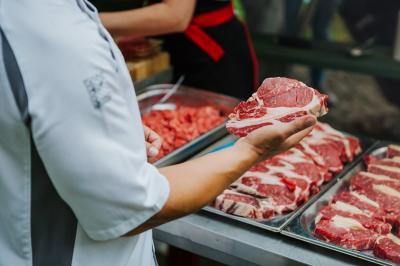
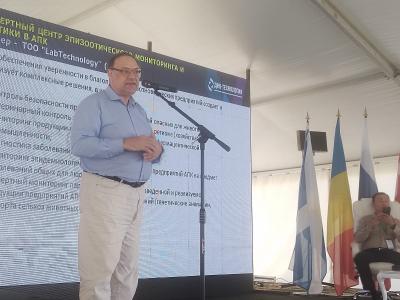
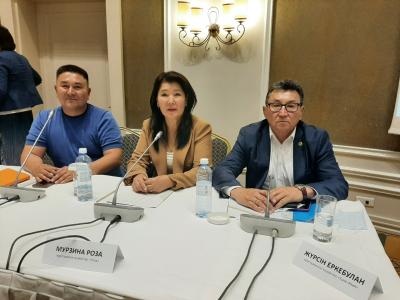
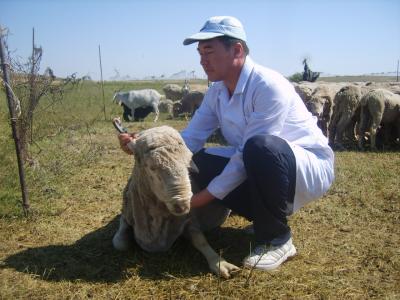
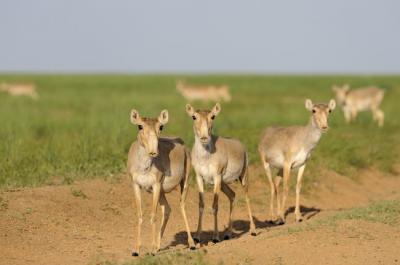

Обсуждение